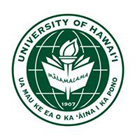- News and articles
- Find usIDP AustraliaIDP BahrainIDP BangladeshIDP CambodiaIDP CanadaIDP ChinaIDP EgyptIDP GhanaIDP Hong KongIDP IndiaIDP IndonesiaIDP IranIDP JordanIDP KenyaIDP KoreaIDP KuwaitIDP LebanonIDP MalaysiaIDP MauritiusIDP Middle EastIDP NepalIDP New ZealandIDP NigeriaIDP OmanIDP PakistanIDP PhilippinesIDP Saudi ArabiaIDP SingaporeIDP Sri LankaIDP Taiwan, ChinaIDP ThailandIDP TurkeyIDP UAEIDP VietnamIDP Corporate
- Social
- English
- Where we operate
- Courses
- Scholarships
- IELTS
- About IDP
- Student Essentials
- News and articles
- Find us
- Find us
- Find nearest IDP offices
- IDP Australia
- IDP Bahrain
- IDP Bangladesh
- IDP Cambodia
- IDP Canada
- IDP China
- IDP Egypt
- IDP Ghana
- IDP Hong Kong
- IDP India
- IDP Indonesia
- IDP Iran
- IDP Jordan
- IDP Kenya
- IDP Korea
- IDP Kuwait
- IDP Lebanon
- IDP Malaysia
- IDP Mauritius
- IDP Middle East
- IDP Nepal
- IDP New Zealand
- IDP Nigeria
- IDP Oman
- IDP Pakistan
- IDP Philippines
- IDP Saudi Arabia
- IDP Singapore
- IDP Sri Lanka
- IDP Taiwan, China
- IDP Thailand
- IDP Turkey
- IDP UAE
- IDP Vietnam
- IDP Corporate
- Social
- Language Switcher
- IDP Education /
- Colleges and Universities /
- United States /
- University of Hawaii - Manoa /
- Master of Science in Mechan...


Location
United States
Qualification
Masters Degree
Fees
USD33648
(2025)
Duration
3 Semester(s)
Next intake
22 August 2025
Entry Score
6.0
IELTSCourse info
Student Learning Outcomes
In general, a student who has successfully completed the graduate degree requirements should be able to:
Demonstrate mastery of the methodology and techniques specific to the field of study.
Communicate both orally and in writing at a high level of proficiency in the field of study.
Conduct research or produce some other form of creative work.
Perform in their field of study at a professional
- Scholarships
- Internships
Entry requirements for University of Hawaii - Manoa
Application Deadline
The application deadline isn't available Speak to an IDP counsellor for more detailed information
Further information
If you aren't eligible for the above entry requirements, you might ant to explore pathway options at University of Hawaii - Manoa. If you want to find out more, speak to our counsellors.
THE World Ranking
251st / 1250
THE World RankingWhat our students think
We’ve haven’t received any reviews for this institution yet.
Recommended for you
- THE World Ranking:301
- Masters Degree
- Chattanooga , United States
- Next intake:06/2025
- Entry Score: IELTS 5.5
- Masters Degree
- Akron , United States
- Next intake:08/2025
- Entry Score: IELTS 6.0
- USD19192 (2025)
- THE World Ranking:90
- Masters Degree
- Irvine , United States
- Next intake:09/2025
- Entry Score: IELTS 6.0
- USD26802 (2025)
- THE World Ranking:90
- Masters Degree
- Irvine , United States
- Next intake:09/2025
- Entry Score: IELTS 6.0
- USD26802 (2025)
- THE World Ranking:351
- Masters Degree
- Philadelphia , United States
- Next intake:09/2025
- Entry Score: IELTS 6.0
- USD33020 (2025)
- THE World Ranking:90
- Masters Degree
- Irvine , United States
- Next intake:09/2025
- Entry Score: IELTS 6.0
- USD26802 (2025)
- THE World Ranking:143
- Graduate Certificate
- College Station , United States
- Next intake:05/2025
- Entry Score: IELTS 6
- USD5194 (2025)
- THE World Ranking:168
- Masters Degree
- Hanover , United States
- Next intake:09/2025
- Entry Score: IELTS 6.0
- USD63684 (2025)
Your action plan
Step 1
Shortlist your courses
Choose the best three courses you’re most likely to pursue.
Step 2
Check your eligibility
Get an instant in-principle offer for courses with the IDP FastLane tag.
Step 3
Apply through IDP Live
Fill out the form once and use it to apply to multiple courses.
How does IDP FastLane work?
With the FastLane 'Offer in Principle', you'll know in minutes if you'll be accepted!
Select an institution and course
Create your academic profile
Submit your application for an 'Offer in Principle'
Your chosen institution(s) will send you a decision in minutes!
Get ready to apply with an expert counsellor




